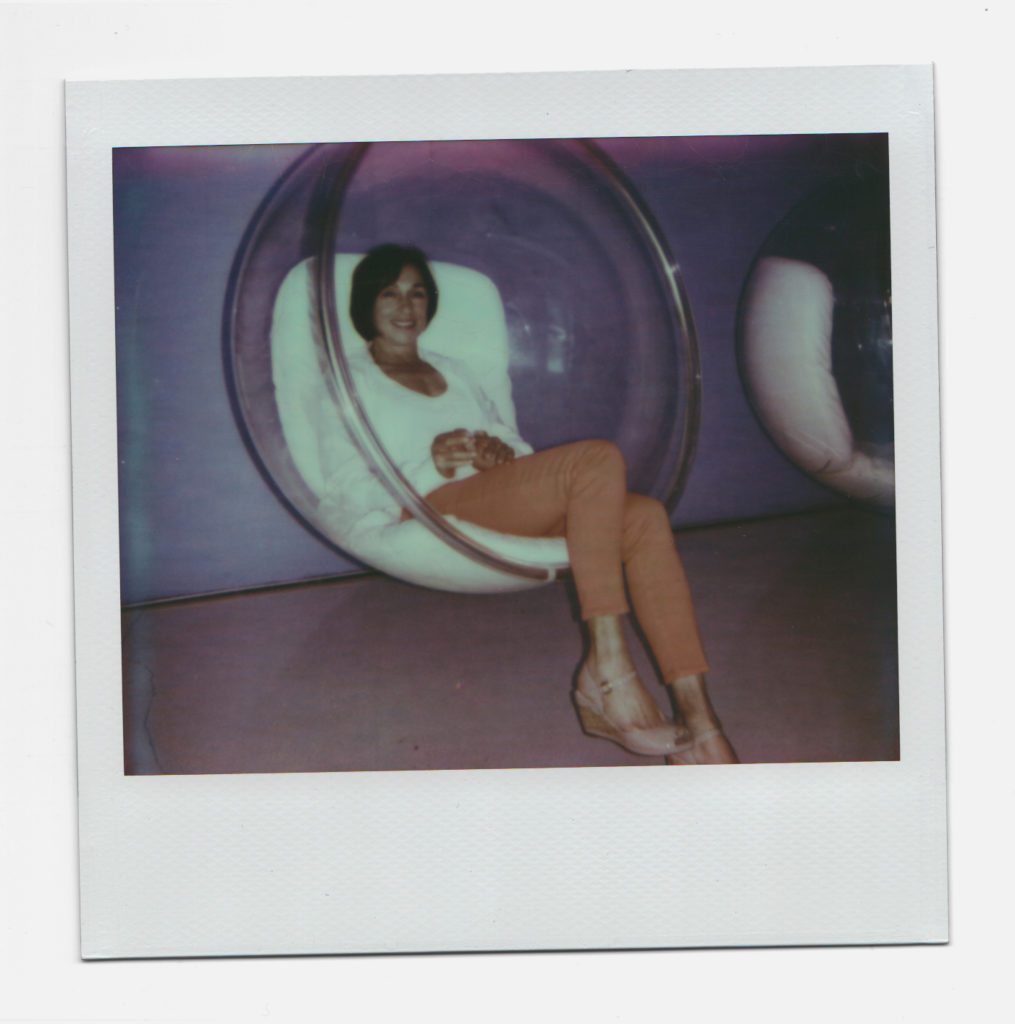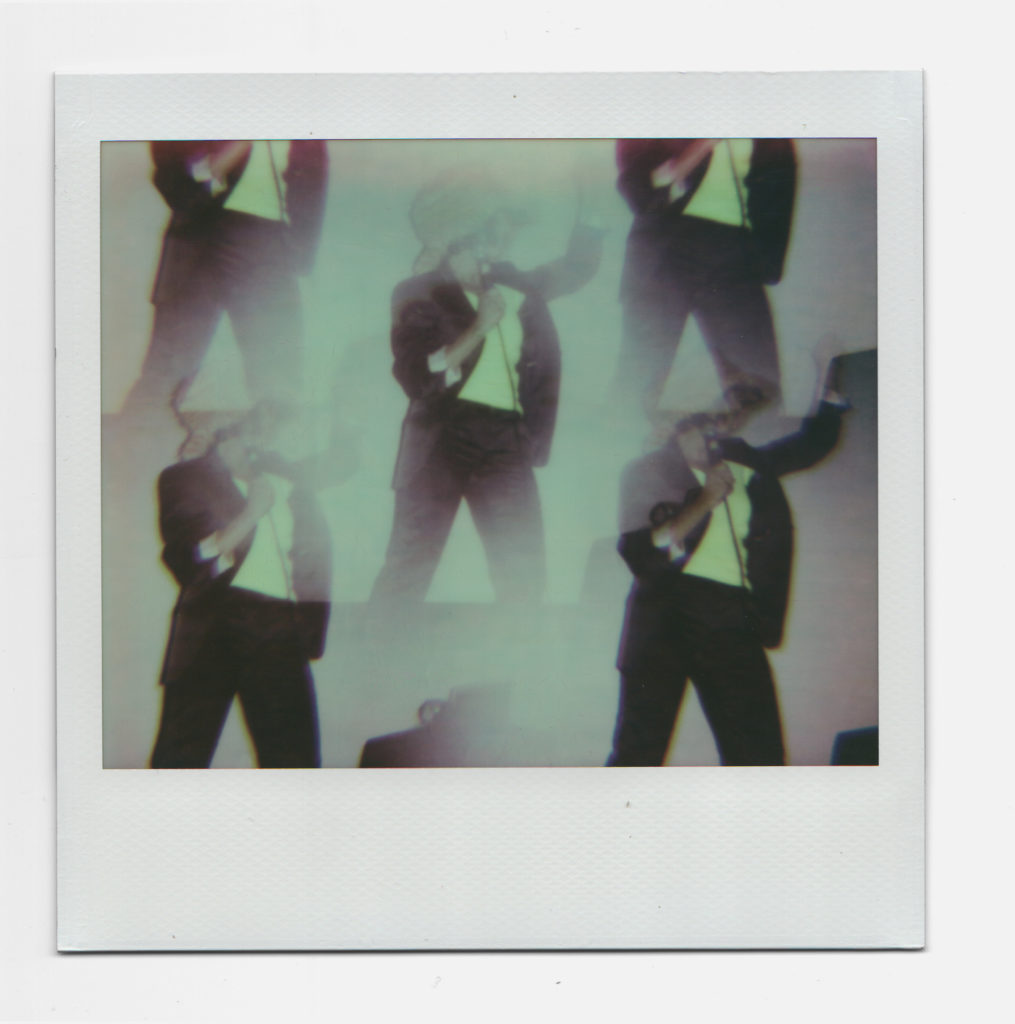Off Hollywood: Riding Suzanne Ciani’s Electric Wave
For over 40 years, electronic composer Suzanne Ciani has been merging her classical music practice with the new frontier of technology.
The pioneer of modular synthesis talks about her career of composing and the role of femininity in electronic music.
By Jennifer Juniper Stratford
Suzanne Ciani, AKA the Diva of the Diode is a pioneer of electronic music and modular synthesis who defined and transformed a genre and introduced femininity to Electronic music.
In 1968, after taking a field trip to MIT and watching a professor demonstrate his attempts to make a computer mimic the sound of a violin, the Wellesley College undergraduate decided to merge her traditional musical practice with the new frontier of technology.
When doors to becoming a recording engineer remained closed to her, she turned to the commercial world to forward her interests in electronic music as a form of expression. In 1974 she formed her own company, Ciani Musica, using a Buchla Modular Synthesizer to compose scores for television commercials for corporations such as Atari and Coca-Cola as well as soundtracks for classic Hollywood films The Incredible Shrinking Woman and The Stepford Wives.
Since then, Ciani has continued to develop a sound all her own, one that channels her fascination with nature and modular synthesis with her background in classical composition. Her sound has turned the calculated masculinity of machinery into calming waves of rhythm. In 2016, we talked with Ciani about her bringing femininity to electronic music and charging a path forward in a male dominated landscape of the 1970s.
THE FRONT: You returned to piano for many years, but you’ve recently returned again to electronic music. Why?
Suzanne Ciani: I’ve been playing solo piano because I think technology can be very exhausting and stressful. Now, playing electronic again, I’ve had to give up a lot of my ideas about what it means to perform electronic music because in the past, I would spend months rehearsing, getting all these knobs and dials, and I would make it into this feat of impossibility. I don’t know if I’ll ever get back to that level again. It takes an awful lot of concentration and enormous amounts of time. I like to go up to an instrument and have it feel like an old friend; otherwise, I get locked up in what I think my ideal is, and then I don’t have fun.
“There are things that women can bring to composition that a guy just doesn’t have.”
For so many years, I was trying to uphold a vision of what it all could be. I wanted to show the ultimate in live synth, with the Buchla. What distinguished [Don] Buchla from the beginning was that he thought his instrument was a live performance instrument. Everybody else was happy to be lodged in the studio or at home and just do stuff in layers, but Buchla really had this vision; that’s why they were all small, compact, little suitcase instruments. So I was proselytized by him; I was his disciple.
What do you think of the renewed interest in modular synthesis?
Isn’t it fun? It’s a generational thing. They’re digging into it, and it’s authentic. I think it’s wonderful because the first time around, modular didn’t reach its potential.
[Suzanne explains how synthesizers work on “3-2-1 Contact” (1980)]
Did you choose not to participate in the East-West rivalry between Buchla and Moog?
Well, I was always a spokesperson for Buchla and felt that Moog caved when he put the keyboard on the synthesizer… It short-circuited the whole evolution of what the instrument could be. For me, Buchla was always number one, but many people forget Bob and Don collaborated on an instrument together [The Piano Bar].
In the early ’70s, you worked for Don Buchla, but we heard you got kicked out of his soldering club. Why?
Don has come a long way, I have to say. Reconnecting with him after all these years has been a really amazing experience because he’s not the same person he was.
When I worked for him, he was pretty uncommunicative. I mean, he would actually walk around making bleeps and bloops! I was like this young eager beaver, and I wanted to learn everything about it, so I said, “Can we have a class?” We had been sitting at these tables soldering, not allowed to talk and doing all this stuff. So he did a class, and there were four guys in the class and me. And after class number one, he said, “Don’t take this personally, but we’ve decided not to allow women in the class.”
Why wouldn’t they want women in the class?
You know, technology is funny. I think the guys didn’t want to look stupid. I think one guy asked, “What color is an electron?” and I laughed, so that was that.
How have you handled sexism in your career?
I wanted to be a recording engineer and work in the industry, but I couldn’t get my foot in the door, as not many women were given jobs as recording engineers. The thing about the Buchla was that it was so off the grid, no one was playing it. So that cleared the way for me a lot. I was able to make unique sounds. I had the most issues with record labels, where they’d look at me ask, “Do you sing? If you don’t sing, what good are you?” They couldn’t envision a woman outside of that box, so that was a closed door. The open door was advertising because they didn’t care; they just wanted something new and different.
What of your old equipment do you still own?
Not much. I never had a lot of space. I did keep my Prophet 5, but it disappeared. Now I have a Prophet 8. You know, Dave Smith lives right nearby? It’s funny, a lot of those guys are right in the Bay Area. Tom Oberheim, Roger Linn, Dave Smith, Don Buchla, Max Mathews, who just died, but they used to get together over coffee every Tuesday morning over in Berkeley. It was kind of cool. You could just show up, if you could get there by 7:30. It was a stretch to get up on time. And I still have the Bode Vocoder; that’s very special to me.
[Suzanne on Letterman showing her system and demoing the Bode Vocoder (1980)]
Did you use the Bode Vocoder to record the voice of the Xenon Pinball?
Yes. I knew Harold Bode. He lived in New Jersey, and he would come over. We had a great time working, and he modified the vocoder so that the highs had a brightness. A lot of vocoders sound muted in a way; they have no high end. So I had that modification on my vocoder, and I still have it. It was very nice of him to do that.
Can you tell us about your alter ego, “Steve”?
He’s a hidden personality. About 30 years ago, I was using the harmonizer, and I found out that if I put my voice down to .8 on the 949, I sounded like a gay guy. It was really convincing! When I heard myself like that, I just became that guy! And then he would say things. He had his own personality. He recorded three songs, but it wasn’t a good time to release them; I didn’t want it to seem like I was teasing gay people. That is not OK; my alter ego just happens to be a gay man.
It makes sense that your male alter ego is a gay man.
Yeah, who knows? Maybe there’s a future for him. Here’s the weird thing: The lyrics I wrote for him are almost 30 years old, and nothing has changed. It’s called “Steve Saves The Planet,” and it talks about what’s wrong with the planet, and it’s all the same things that are wrong now. Nothing has changed. We still have air pollution; we still have all of the same things. I thought maybe I could do one about gun control. But he’s not always political. He also did “Steve Goes To A Party” and “Steve Wishes You A Happy Birthday.”
“I think what women do with machines is work from an emotional connection.”
Do you think that machines can communicate to humans on a different level?
I think machines are very reassuring in some ways, precisely because they are machines. The worst thing is when a machine does not behave like a machine because then it becomes chaotic, impossible. Don’t you think part of your love affair with a machine is that it is predictable, to some degree? It behaves like a machine. I mean, it is sophisticated; it has a lot of depth. I think what women do with machines is work from an emotional connection, and it’s good because you don’t have to show off or try too hard.
You also composed the score for “The Incredible Shrinking Woman,” making you the first solo female composer to score a major Hollywood film. How did you land the job?
The lead up to this invitation was through Kenny Hall, a top Hollywood music editor who had come to NYC to work on a Lincoln-Mercury campaign. He was a fan of mine and invited me to work on the campaign as well. Kenny was “blown away” by the way I worked with picture and mentioned my name at Universal. Verna Fields was head of production and Lily Tomlin were looking for a composer. Clearly, through that female energy, I was given the opportunity to score the film. Because there had been a strike, Universal never filed a musicians contract so all these years I have gone without any union royalties. And also, because of the strike, they never publicized the first woman thing, though both Verna and Lily Tomlin wanted to.
Did your previous work inspire “The Incredible Shrinking Woman” soundtrack?
The Incredible Shinking Woman plays with advertising and consumer products. Especially the jingle for the product “Galaxy Glue” which was co-written with Billy Davis and recorded in NYC using a top jingle singer named Linda. The fact that there were so many commercials in the film was right up my ally, and I whipped them out as little parodies…not the sophisticated jingles we usually did.
You contributed all the electronic music for the soundtrack of the original “Stepford Wives.” I particularly love the music in the scene where the robot wives begin to short-circuit during and afternoon social. What was your process for making the music for robotic housewives?
I did all of that on the Buchla! Michael Small was so open to this unusual electronic approach and just loved how weird and unsettling it could be. I loved working with him. I programmed some of the melodic themes into the 16-stage sequencer and then frequency modulated them in a kind of nauseating and disjointed way. The Buchla machine was a perfect metaphor for the inner workings of the women, who were machines as well.
[Suzanne in her studio recording “Water Lullaby” from her first album “Seven Waves.”]
A lot of people say you brought femininity to electronic music. Was that a conscious effort or just second nature?
I just made what I love, and it came out that way. But I did think the machine was the perfect conduit because you could go very slowly. It’s hard to play slowly in a lot of other contexts. But the rhythms were totally dependable, so calming. When you go slowly and it’s dependable, you find it like the ocean, like the waves, the rhythm. There are planetary rhythms that are slow and comforting, and then there was the feminine energy arc. I call the pieces waves because they build slowly and then release. It was very sexual. It was a compositional paradigm that was feminine. You know, men don’t have that same curve in their energy. The female sensibility is that we don’t like to make categories because it’s all grey across the scale. There are things that women can bring to composition that a guy just doesn’t have. I think there’s a lot of masculine expression through machinery, and it doesn’t speak to me much.
Do you believe there are healing properties in your music?
That’s actually what motivated me in the first place! For my first album, Seven Waves, the machine helped in that because it’s perfectly dependable — this was before everything was mechanical — and it was very slow but completely reliable. And I think that translated into a resonance of calmness in your body and in your mind. I get a lot of feedback from people that my music is somehow very personal. I don’t know if it’s that way for everybody, but it’s there. And I think it’s there because that’s what motivated me. I want to feel good when I’m in the music. That’s probably a feminine thing…
Do you have any spiritual path or belief system?
I believe in the ocean, the waves. I used to think the ocean was a safe space where humans couldn’t go, but all that’s changed and the ocean is a mess right now. I donate and do whatever I can do to help the ocean. I also like the perspective of the galaxy and our tiny little spot in it, and I think keeping that perspective is important. I think we act in ways that don’t recognize our vulnerability.
View more of Suzanne’s work at her website.


